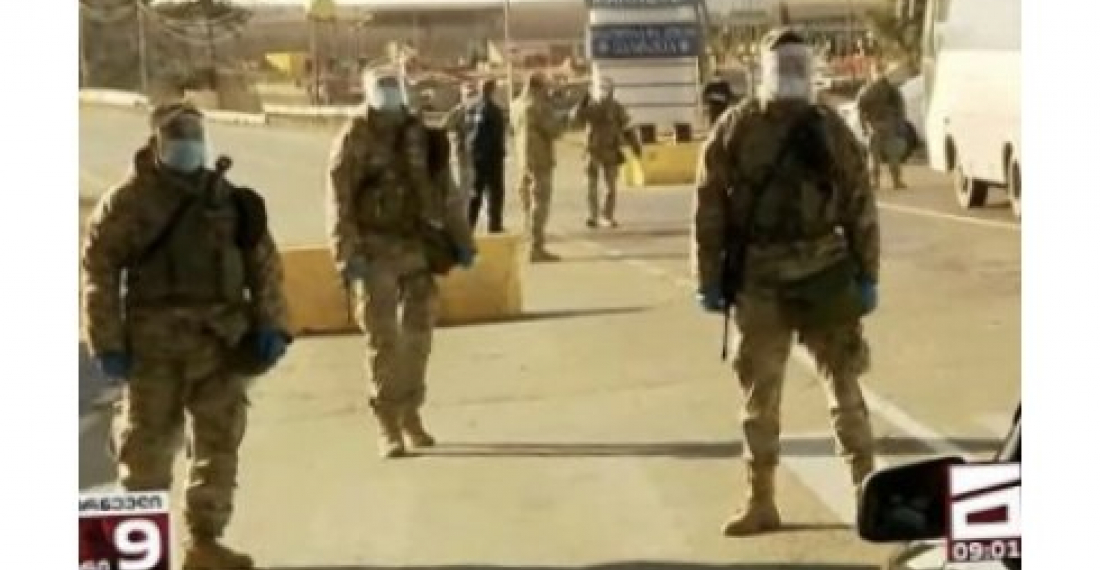Georgian military units and Ministry of Interior forces have isolated the mainly Azerbaijani speaking southern districts of Marneuli and Bolnisi following an outbreak of the coronavirus in the area, in a move with wide-ranging ramifications.
Georgian prime minister Giorgi Gakharia made the announcement in a sombre late night press conference in the capital Tbilisi. The decision was taken after a woman was diagnosed positive with the virus. "[We] could not identify the source of infection case in Marneuli, [the virus] was contracted during the [death anniversary] rites, that was attended by dozens of people," said the Prime Minister, adding that "the situation remains quite hard; this is the challenge that we [previously] spoke about, meaning that [the country] moves to the stage of community transmission[s]", the prime minister was quoted as saying. Gakharia noted that freedom of movement will be restricted within the two municipalities except for grocery and pharmacy shopping and performing some agricultural works.
Elements of the Georgian army and ministry of interior forces took positions around the two districts shortly after the prime minister's speech. According to the latest Population Census of Georgia, conducted in 2014, Marneuli Municipality is home to 104,300 inhabitants, while Bolnisi Municipality is inhabited by 53,590 persons. The two municipalities are densely populated by Azerbaijani-speaking, and mainly Muslim, Georgians, who make up around 80% of the population of Marneuli district.
Commonspace.eu political editor said in a comment that these developments pose a very tricky challenge to the Georgian government since measures in minority areas inevitably need to be conducted with extra sensitivity. The very deployment of military units in the area could even by itself be considered a provocation, and enforcing a strict quarantine regime will not be simple or easy. The Georgian Government has appointed Sozar Subari as the Government co-ordinator for the operation in Marneuli and Bolnisi. A former Minister, and former Ombudsman of Georgia, Subari has the right skills to manage the community relationship that is going to be required in this difficult task at this difficult period. The Azerbaijani speaking population has close family and business ties with neighbouring Azerbaijan, and coronavirus and the closing of the border was already causing inconvenience and distress in the affected communities. Relations between Georgia and Azerbaijan are traditionally very good, and the two countries co-operate in various frameworks and are in some ways economically inter-dependent. However in recent years relations have been strained due to some border disputes. Georgia has also to balance its relations with Azerbaijan with those with its other neighbour Armenia. Unless properly managed, the coronavirus crisis can trigger political consequences. Neither Tbilisi, nor Baku, want or need this at the moment but the longer the coronavirus emergency lasts the more strain there will be on relations.
source: commonspace.eu
photo: Georgian soldiers operate a checkpoint outside Marneuli district to enforce a quarantine after an outbreak of coronavirus in the area (screen grab from TV Mtavari Arkhi)







